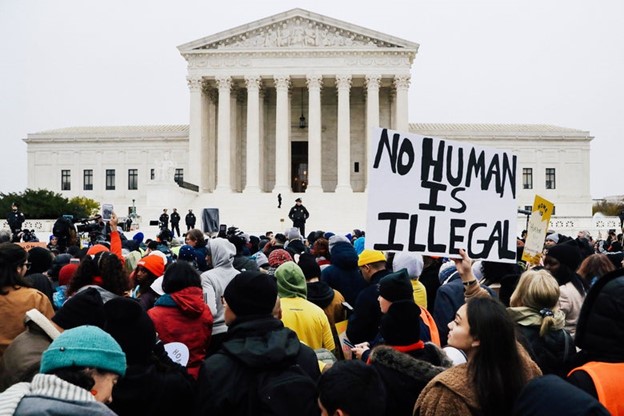
This week, the U.S. Supreme Court issued a ruling against a Georgia man who has lived in the U.S. for decades and faces deportation after he checked the wrong box in the driver’s license application. The ruling makes it more difficult for non-citizens facing deportation to get a federal court to review factual determinations made by an immigration court about relief from deportation.
The case concerns Pankajkumar S. Patel, a citizen of India who entered the U.S. unlawfully in 1992 and was in the process to become a lawful permanent resident. In 2008, while his petition to adjust his status was pending, he checked a box on a driver’s license renewal application mistakenly claiming that he was a US citizen, for which he was charged with making a false statement.
The charges against him were later dropped, however, the Department of Homeland Security (DHS) placed him and his family in removal proceedings. Later, when he went before an immigration judge, he said that he had checked the wrong box by accident. He also argued there was no reason to intentionally check the wrong box because, under Georgia law, he was eligible to receive a license without being a citizen since he had a residency application and a valid employment authorization.
Justice Amy Coney Barrett wrote the decision for 5-4 court, interpreting the law even more strictly than the federal government. In Monday’s opinion, Barrett noted that Congress has established the rules by which non-citizens can live in the United States and when those rules are broken, there are procedures for removal. She said, “there is room for mercy” from the Attorney General but, she also claimed, “federal courts have a very limited role to play.”
Conservative Justice Neil Gorsuch wrote the dissent in the case, joined by the court’s three liberal justices. He said the ruling will have “dire consequences for countless lawful immigrants” and noted that each year “thousands” of individuals seek to obtain a green card” such as students who hope to remain in the country, and a skilled workers sponsored by an employer.
“Today, the Court holds that a federal bureaucracy can make an obvious factual error, one that will result in an individual’s removal from this county, and nothing can be done about it,” Justice Gorsuch wrote.

Recent Comments